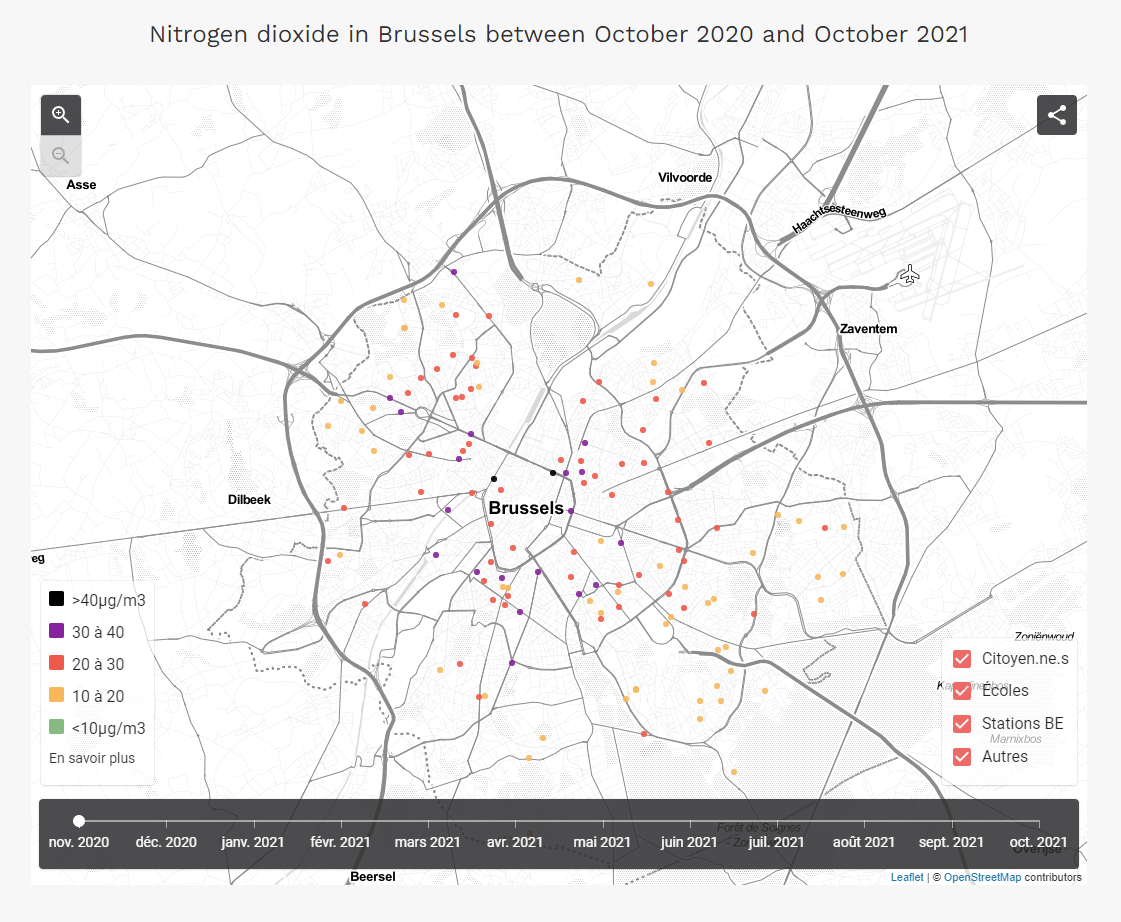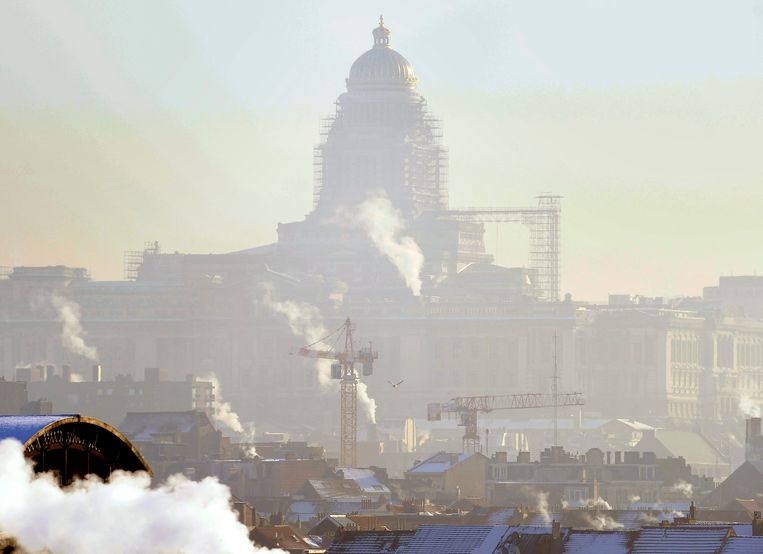The new World Health Organisation (WHO)’s recommendation on nitrogen dioxide (NO₂) is exceeded in all 67 schools in Brussels where measurements have been taken, according to a study carried out by the non-profit association Les chercheurs d'air in collaboration with the Brussels Environment Agency.
“Brussels is the 8th most polluted European city when it comes to nitrogen,” the study found. “Because of this pollution, as well as fine particles, more than 500 premature deaths could be avoided each year.”
In addition to human lives, pollution costs Brussels money: €1.6 billion in the year 2018, to be precise, or an average of €1,400 per inhabitant of Brussels for that year alone.
“When the air is polluted, our health is damaged because of, among other things, the appearance of asthma, sinusitis and cancers,” the study reads. “Children are particularly vulnerable to these threats.”
Road traffic largely to blame
Road traffic is responsible for a large part of this problem, emitting 29% of the very fine particles (PM2.5) and representing 63% of the regional emissions of nitrogen oxides.
Related News
- No fresh air: Brussels parks not as green as they seem
- Brussels wants to pay people to get rid of their cars
Researchers point out that because the study was done during the pandemic, when traffic levels were lower, the pollution levels during normal times are likely much higher.
“Despite the lockdown and a reduction of road traffic, the main emitter of NO2, the air in Brussels is still too polluted,” said Pierre Dornier, President of the non-profit organisation Les chercheurs d'air.
“Children, whose bodies are still developing, are particularly vulnerable to this pollution. It is neither normal nor acceptable that so many schools are exposed to NO2 concentrations that are dangerous to health.”
An urgent call for mobility changes
Dornier said it is “urgent to accelerate the implementation of ambitious measures,” including enforcement of LEZ zones and a reduction in cars – in particular on streets with schools – in order to improve air quality in the Brussels Region.

Image from Les chercheurs d'air.
Brussels Minister for the Environment Alain Maron called the results “alarming,” adding that they should push the city to redouble its efforts towards improving air quality.
“This is vital because air pollution has a significant impact on our health,” Maron said.
“A secondary measurement network will be created, and ambitious measures will be taken to better protect the health of the people of Brussels, especially the most vulnerable, such as children and the elderly.”

